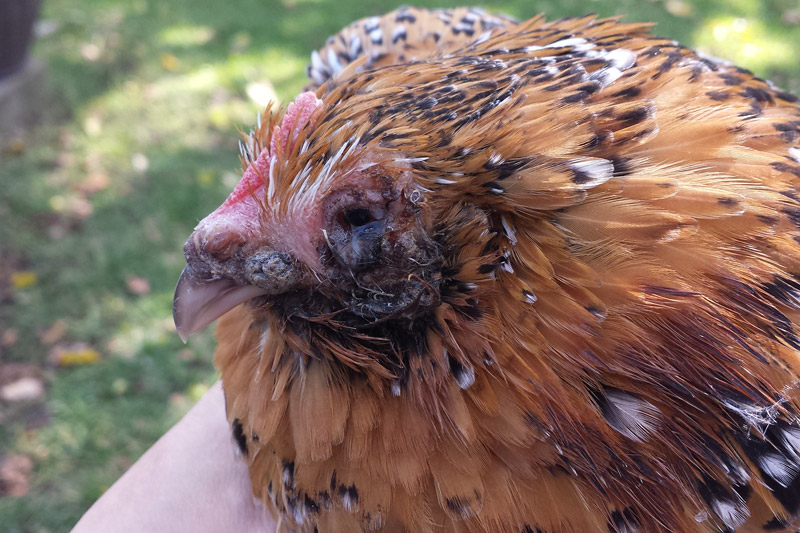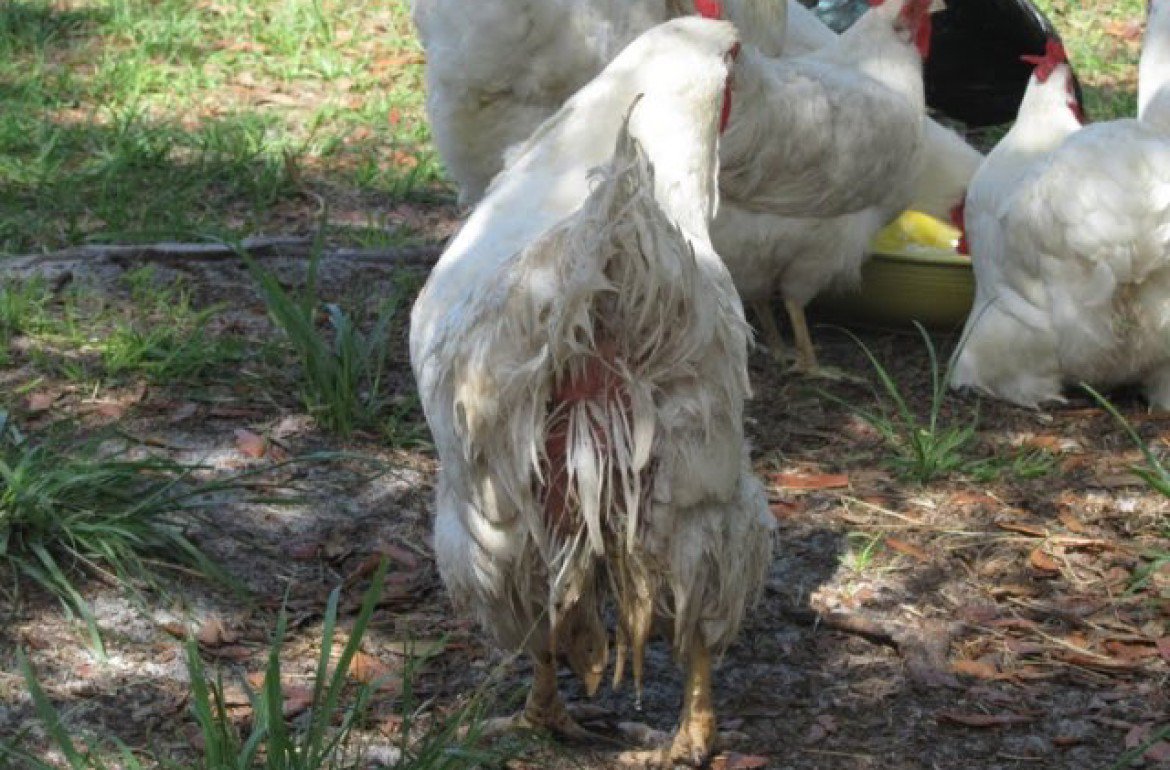Backyard chickens are what I like to call a gateway animal, these easy to care for low maintenance animal can be a joy to have on any scale of a homestead. They can be very entertaining simply to watch and they off a great return of eggs, meat, tilling and fertilizer on your homestead. Just the same as any other animal these productive ladies and gents can get sick. Here is a list of the top illnesses chickens can get in a cold climate, and how to treat them.
Bumblefoot

Bumblefoot is a disease that you’ll know exactly what you’re looking at when you see it.
It begins by your chicken accidentally cutting its foot on something. It can happen when they are digging in the garden, scratching around in mulch, and so many other ways. But then the cut gets infected. And the chicken’s foot will begin to swell. It can even swell up the leg.
So you can treat it by performing surgery. If not, the infection will eventually take over the chicken and claim its life.
Obviously, bumblefoot can happen very easily and there isn’t much you can do to prevent besides just keep a close eye on your chickens’ feet. If you notice they have a cut then be sure to wash and disinfect it to prevent this disease from setting up.
That is all of the common chicken diseases I have for you today.
However, there are many less common illnesses too. So just be sure to always pay attention to your flock and stay alert to any changes. Never be afraid to research. It is better to overreact than to underreact and miss something that could be detrimental to your whole flock.
Fowl Cholera

You should be suspicious of this disease if you see your birds begin to have a greenish or yellowish diarrhea, are having obvious joint pain, are struggling to breathe, and have a darkened head or wattle. Fowl Cholera is a bacterial disease that can be contracted from wild animals or food and water that has been contaminated by this bacteria.
But the downside to your chicken developing this disease is there is no real treatment. If by some chance your chicken survives, it will still always be a carrier of the disease.
So it is usually better to put them down and destroy their carcass so it will not be passed.
But there is a vaccine for your chickens to prevent the disease from ever taking hold.
Fowl Pox

If you notice that your chickens develop white spots on their skin, scabby sores on their combs, white ulcers in their mouth or trachea, and their laying stops then you should grow concerned that your chickens are developing Fowl Pox.
There are treatment options for Fowl Pox. You can feed them soft food and give them a warm and dry place to try and recoup. With adequate care, there is a great chance that your birds can survive this illness.
If you would like to remove the odds of your birds even contracting this disease there is a vaccine available. If not, know that they can contact this disease from other contaminated chickens, mosquitos, and it is a virus so it can be contracted by air as well.
Botulism

If your chickens begin to have progressing tremors you should grow concerned. If your chickens have botulism the tremors will progress into total body paralysis which does include their breathing.
It is a serious disease.
You will also notice their feathers will be easy to pull out and death usually occurs within a few hours.
But what can you do about it?
Well, there is an antitoxin that can be purchased from your local vet. Though it is considered to be expensive. However, if you catch the disease early enough you can mix 1 teaspoon of Epsom salts with 1 ounce of warm water. You can give it to them by dropper once daily.
If your chickens have contracted this disease it means that there has been some type of dead meat left near their food and water which contaminated it. Which means this disease is avoidable as long as you keep your chickens in a clean environment and clean up any dead carcass from around their environment.
Thrush
Thrush with chickens is very similar to thrush that babies get.

You’ll notice a white oozy substance inside their crop (which is a space between their neck and body.) They will have a larger than normal appetite. The chicken will appear lethargic and have a crusty vent area. And their feathers will look ruffled.
It is important to mention that thrush is a fungal disease. This means it can be contracted if you allow your chickens to eat molded feed or other molded food. And they can also contract the disease from contaminated water or surfaces.
Though there is no vaccine, it can be treated by an anti-fungal medicine that you can get from your local vet. Be sure to remove the bad food and clean their water container as well.
It is important to remember how the animals that you bring onto a homestead will life, be treated and how they will spend their lives from begging to end. With all animals no matter how common, it is important to remember that clean water, mold-free foods and a clean area to forage and scratch at is the best preventative medicine. If you keep your chickens daily care in mind it will make controlling illness in the future an easier task.

This is great information…Thank you for posting it.
LikeLiked by 1 person
How long have you owned chickens?
What climate do you live in?
This is such good info! I have a few more questions pending… 🙂
LikeLike
I have been around chickens, ducks, cows, goats. horses and so so many other animals all my life. We don’t currently have any chickens on our new homestead because I am waiting to see how the property behaves before we add animals, this way we don’t put them somewhere that will flood or that’s close to a regular predator trail etc.
We live in a zone 5a growing zone in Ontario Canada, we get temperatures as low as – 40 and as high as 40 degrees Celsius
If you want to send me your questions I would be more then happy to help address them in a future post! A few people may have similar questions and I would love to offer as much help as I can!
LikeLike
We currently have had chickens for 8 years. Zone 4a in Minnesota.
I was curious to what your water situation looks like in the winter?
LikeLike
This year its been mostly snow and ice not a whole lot of water yet, we just moved onto our current homestead in mid December so well have to see what spring brings. I think well need to look at diverting some water away from the main areas in the spring for sure!
LikeLike
I meant drinking water! I have purchased so many heated water buckets or heating bases. They last one year.
LikeLike
*face palm* silly me lol we have some of the cleanest water around and lots of it! Maybe try a fish tank heater? or try to keep the water moving so it doesnt freeze? I know Justine Rohdes put a youtube video up latley where he built a small system to keep his chickens and pigs water flowing so it doesnt freeze.
LikeLike
I’ll have to check it out!
We have clean water. I just struggle with keeping it thawed and am tired of paying for heated buckets. Those suckers are not cheap!
LikeLiked by 1 person